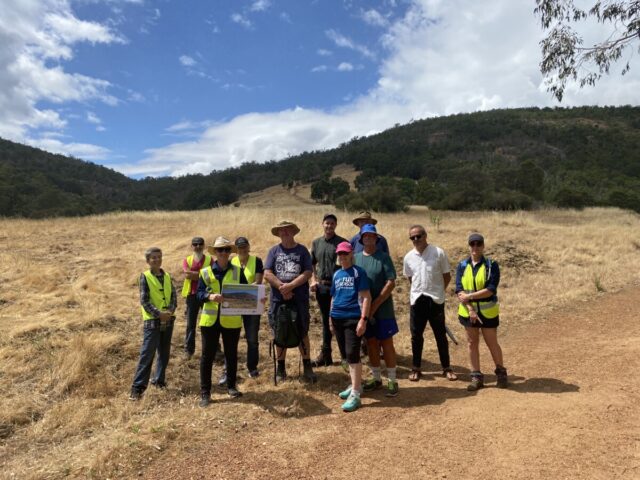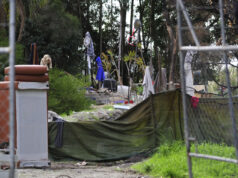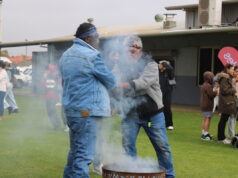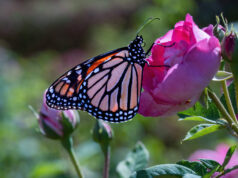An exercise in cooperation to tame the scourge of cotton bush in the Serpentine National Park has been declared a success.
The Peel Harvey Biosecurity Group (PHBG) and partners in the ‘Controlling Cotton Bush in Serpentine National Park’ project have celebrated its successful conclusion with a guided hike to the project site followed by morning tea.
A group of twelve took part in the hike, where PHBG Executive Officer Teele Hooper-Worrell described the scope of the project and displayed ‘before’ images that detailed the mass of cotton bush that had been at the site prior to the start of the project.
Shire of Serpentine Jarrahdale councillor Reece Jerrett, Jarrahdale Trail Coordinator Pascal Veyradier, volunteers from Serpentine Enviro Group, interested locals, and representatives from the PHBG team including PHBG Chair Brian Doy made up the group of walkers.
Following the hike, weed spray contractor Mark Brown from Western Envirapest, Department of Conservation, Biodiversity and Attractions Senior Ranger Paul Tholen, and Kathryn Batchelor Environmental Scientist CSIRO each spoke to attendees.
Western Envirapest’s Mark Brown and his team drew upon experience when assessing the terrain, scope and access. Best practice techniques were followed, evolving as the project progressed.
“Initially the cotton bush was large, and spraying large cotton bush requires more chemical,” Mr Brown said.
“The site looked very different in year one, to what it was in year two and we were able to extend the scope of the initial plan when the site responded so well to control.”
Ms Hooper-Worrell said the follow-up spray was essential to the success of the program.
“When the group returned each year, they found the condition of the site to be as expected, if not better,” she said.
Senior ranger Paul Tholen specifically thanked the PHBG for securing the State NRM grant funding which made the project possible, explaining that ranger services could now undertake ongoing activities to control cotton bush where it regenerates.
The project could not have been as successful without the many hours put in by the dedicated volunteers from Serpentine Enviro Group. The group meets on Tuesday mornings and welcomes new volunteers.
This three-year project was funded by the Western Australian Government’s State NRM Program.
The PHBG said they were “proud” to have facilitated this project and extended “sincere thanks to each of the project partners”.
“This result could not have been achieved without the contributions made by all parties,” they said.














